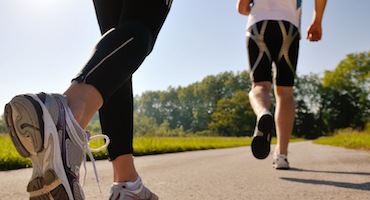Recent news (Blog)
Check your health before starting a new exercise plan
- Hits: 4201
San José, Costa Rica. April, 2014.
 Before beginning any type of new exercise plan, it is necessary to check up the state of your health in order to avoid complications which could even be life-threatening. For this effect, it is advisable to undergo a basic laboratory check-up which includes determination of blood sugar levels and a lipid profile for metabolic evaluation and cardiovascular risk.
Before beginning any type of new exercise plan, it is necessary to check up the state of your health in order to avoid complications which could even be life-threatening. For this effect, it is advisable to undergo a basic laboratory check-up which includes determination of blood sugar levels and a lipid profile for metabolic evaluation and cardiovascular risk.
As part of the necessary tests a resting electrocardiogram is recommended, along with a specialized cardiology test known as a stress-echo test, which consists of a combination of an electrocardiogram with a stress test, such that not only the electrocardiographic register is obtained, but also images of the heart’s functioning when under physical stress, this being obviously carried out following a programed and progressive protocol.
“The evaluation of the sportsperson should be holistic: going from nutritional and musculoskeletal aspects to all those tests which can help to evaluate cardiovascular risk. Besides this, the sportsperson should be aware that a heart check-up should be part of your routine at least on an annual basis, and any time a change is noticed, the intensity of the exercise should be diminished, as this tends to reverse and changes which may place you at risk,” stated Doctor Juliana Salas Segura.
Sportspeople tend to undergo structural changes named athlete’s heart; this consists of a series of anatomical, electrical and physiological adaptations which see the heart increase in size, become thicker and have a lower cardiac rate which for this same reason makes it stronger, more capable of tolerating greater effort for longer periods of time than a person who does not exercise frequently.
Some sports imply a greater risk of suffering cardiac or respiratory problems. The more anaerobic the activity required, as in for example weightlifting, the more likely it is that the heart will undergo hypertrophy, which is to say, it becomes thicker. However, exercise which is more aerobic but high performance tends to be more related to incidence of sudden death.
“Sudden death is a form of natural death due to cardiac causes, unexpected in the time and type of presentation, which arises after a brief loss of consciousness within, as a maximum, the hour following the beginning of the symptoms in an individual with a known or unknown cardiopathy,” explained Dr. Salas.
For more information or an appointment, call 2522-1000 or write to citas@clinicabiblica.com

